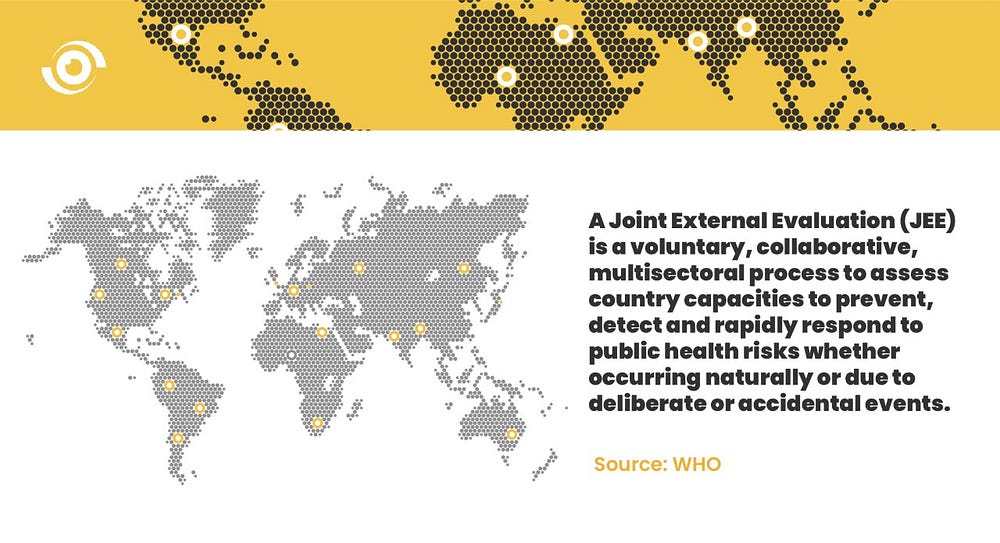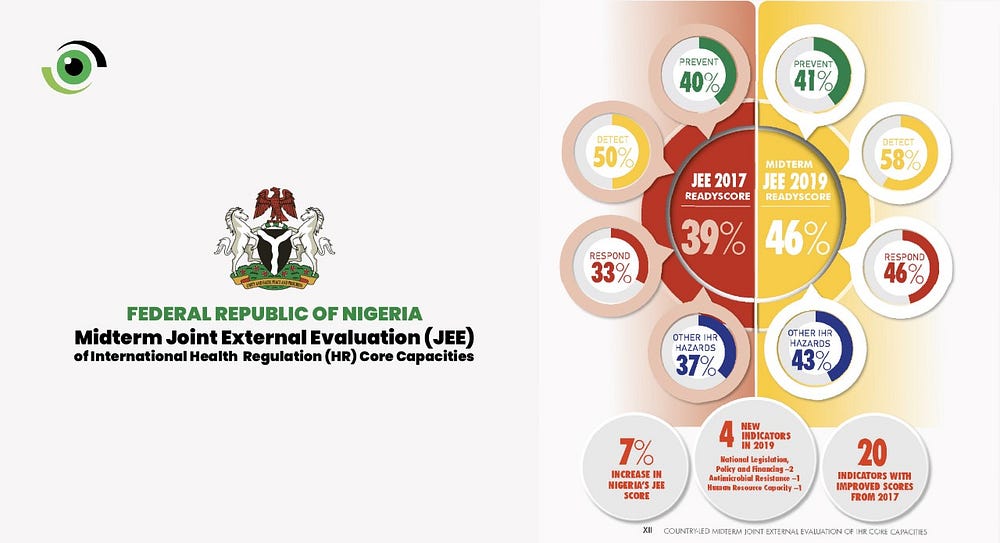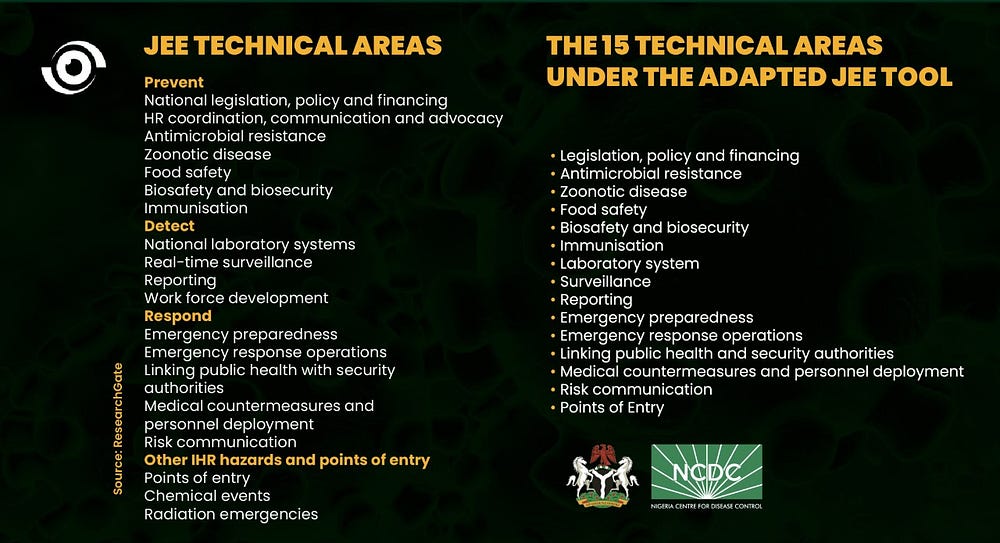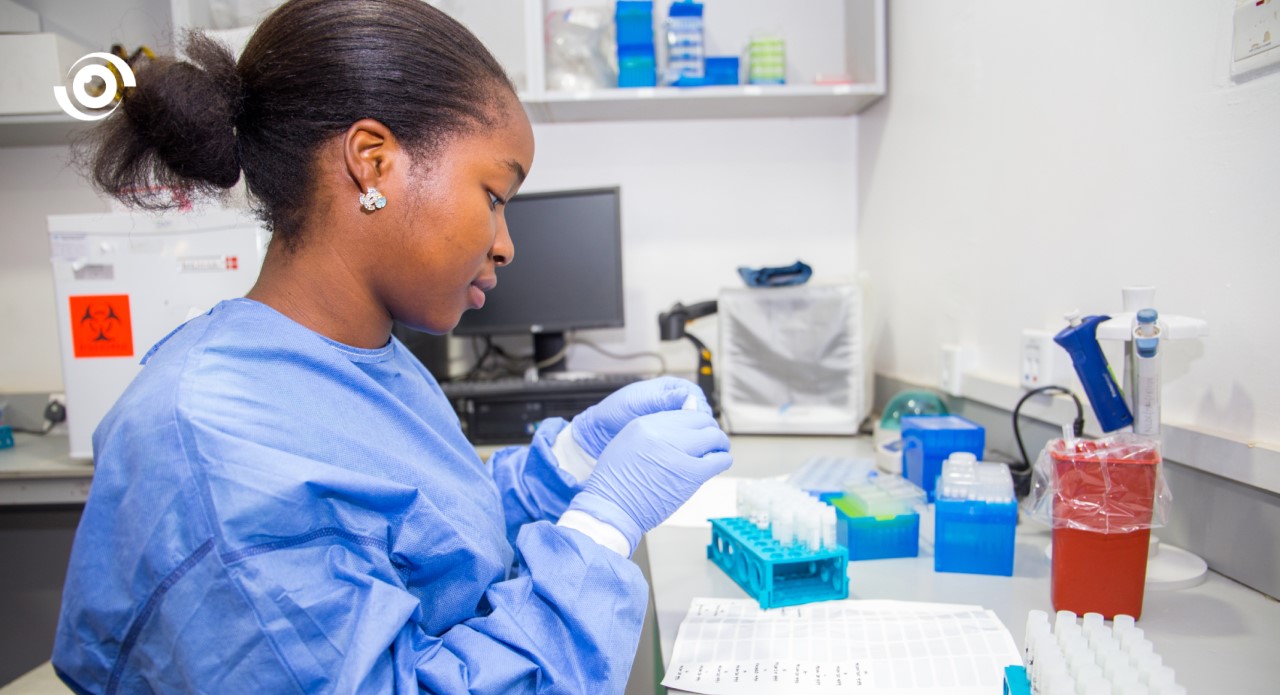By Chibuike Alagboso and Onyinye Oranezi
When the first case of COVID-19 was confirmed in Nigeria, Dr Johnson Simon Mafuka who heads the Infectious Diseases unit at the Federal Medical Center (FMC), Owerri, Imo State said they knew it was a matter of time before the first case would arrive in the state. At the time, the facility had the only isolation centre in the state, but soon after, the government built an Emergency Operations Centre (EOC) to help boost its capacity to respond to the next infectious disease threat. This was a positive step as a Public Health Emergency Operations Center (PHEOC) can help coordinate disease surveillance and organise and structure the response, when outbreaks occur. However, beyond investing in the right structures, preparedness also means constantly assessing the state’s overall capacity to respond to events that threaten its health security.
A brief history
In 2018, Nigeria developed the National Action Plan for Health Security (NAPHS) to strengthen the implementation of the International Health Regulation (IHR) core capacities, a costed multiyear roadmap for strengthening the nation’s health security. The NAPHS captured the country’s priorities for health security, brought sectors together that encompass a One Health approach and identified partners that have a responsibility to respond to public health threats that occur naturally or due to deliberate or accidental events, at the national level.

However, preceding the NAPHS was the Joint External Evaluation (JEE) which is conducted every five years. The JEE is a voluntary, external evaluation of a country’s ability to find, stop and prevent disease threats. Pre-determined core technical areas are used to assess a country’s capacity and readiness. The JEE guides the development of the NAPHS, therefore ensuring that funds, technical capacity and other available resources focus on and prioritise major gaps identified.
Nigeria conducted a JEE in June 2017, which identified the critical gaps that needed to be filled to protect the nation from the next major event. A midterm JEE was conducted in 2019 to help assess improvements from the previous one. It also helped review progress and identify challenges in the implementation of the NAPHS. Lessons from this self-assessment showed the importance of continuous self-appraisal to determine a country’s level of pandemic preparedness and develop plans to strengthen health security core capacities, especially during periods between one public health event and another.

The 2017 JEE and subsequent 2019 midterm JEE assessed Nigeria’s capacity to prevent, detect and respond to a health emergency at the national level, with no provision made to assess capacities at the sub-national level. To address this deficit, the Nigeria Centre for Disease Control (NCDC) developed the ‘Strengthening States for Health Security’ strategy. Their aim was to provide the necessary support to improve capacity to prevent, detect and respond to infectious disease outbreaks at the sub-national level in Nigeria. This could not be effectively done without first evaluating their capacity, consequently, the JEE tool was adapted to measure capacity at sub-national level, bringing the technical areas down to 15 from 19. The tool was piloted in Enugu and Kano State.

“We are ready to learn”
While Imo State has not yet conducted a state-level JEE, the State Commissioner for Health, Dr Prosper Ohayagha agreed that it’s best to prepare for public health threats before they happen and as such, the state is open and ready to learn from such evaluations because the JEE “is not about today but tomorrow”.
This is an important assertion because only when states evaluate their state of preparedness, will they be able to identify gaps that will leave them vulnerable to future outbreaks. Any weak link in the process invalidates efforts made to strengthen other areas. The State Epidemiologist, Hyacinth Egbuna said they are already learning useful insights from peers like Enugu State who have conducted their JEE.
So, what next?
The JEE recommends a one health and multidisciplinary approach and one of the steps taken before Enugu State conducted its JEE was to get multisectoral buy-in from all ministries involved in the one health response strategy. Team leads for the technical areas conducted a self-assessment test using the same guidelines to be used by the external evaluators. Their self-assessment scores were then compared with the findings of the external evaluators. This was followed by meetings to validate findings and recommend action to address identified gaps.
This is the same route that the Imo State assessment will take, said Dr Oyeladun Okunromade, Deputy Director of Surveillance at the Nigeria Centre for Disease Control (NCDC). While Imo State is slated to be one of the seven states where the JEE will be conducted next, she emphasised that the first step is a voluntary expression of interest. Among other things, the states must also be willing to act on results after the assessment, commit enough human resources for the evaluation and work with other one health stakeholders. After the assessment, the states are expected to develop an action plan to strengthen any gaps identified.
While efforts are being put in place to conduct the JEE in Imo State, it is important to remember that citizens are important stakeholders that must be proactively engaged with, every step of the way. This must not be an after-thought because it is important to build trust and partnership with the public for public health initiatives like the JEE, for them to succeed.
This narrative was done as part of the #COVID19NigeriaStories documentation project on state-level responses to COVID-19, implemented by the Nigeria Centre for Disease Control and Nigeria Health Watch with support from the Ford Foundation.



